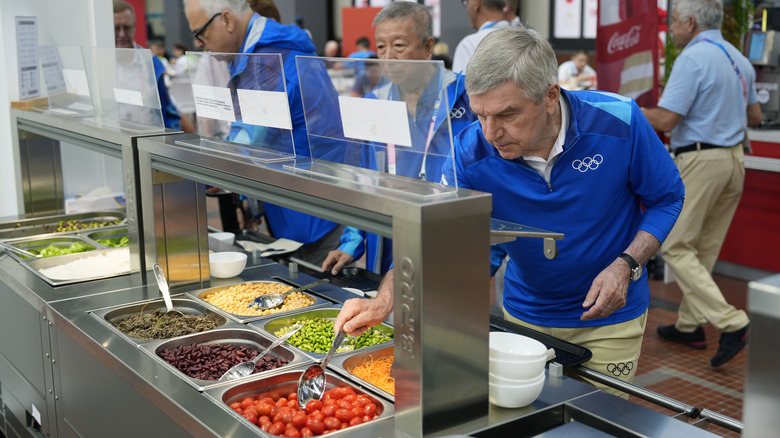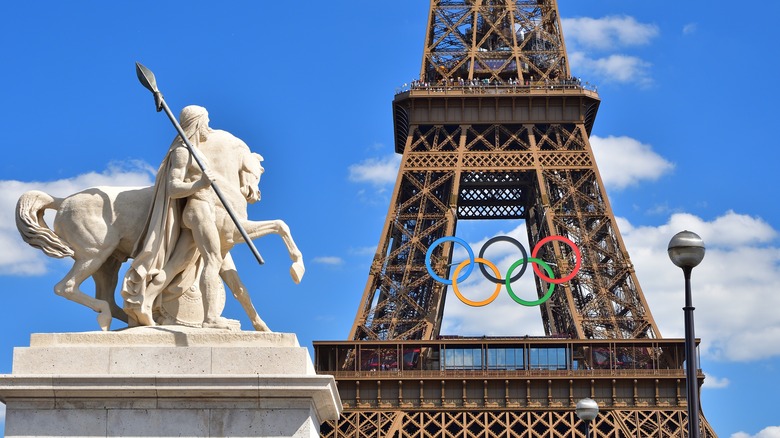After A Slew Of Complaints, The Olympic Village Is Finally Getting More Food
The grandiose scale the Olympics brings comes with unique challenges for the hosting city, and the 2024 Summer Games have been no different. Paris has tackled numerous challenging endeavors in order to prepare for the Olympic events. These endeavors included investing $1.5 billion into cleaning the Seine, deploying 75,000 troops to guard the events, and transforming one of the poorest regions of France into one fit for the Olympic Village. However, Paris' work doesn't end with preparation, as revealed by the numerous complaints regarding the variety and quantity of food at village dining venues.
While Paris prides itself on its eco-friendly, regionally sourced meals designed by Michelin-starred chefs prepared at the Olympic Village, the lack of carnivorous options left many athletes hungry for more. The high demand for protein resulted in rationed breakfast eggs, a decision that faced heavy criticism. There have been chicken and specific carbs shortages, along with other food issues such as guests receiving under-seasoned and undercooked meat. Now, finally listening to the athlete's complaints, Paris is bringing more food to the Olympic Village.
Solving the Olympic Village food crisis
This isn't the first time Olympic venues have run out of food; Rio faced similar difficulty meeting athlete's demands in 2016. Both instances were solved by bringing in more food, and in Paris' case, specifically providing more meat products. Over 700 kilograms of eggs and large quantities of meat, were brought in to solve the Olympic Village's protein crisis. While this doesn't necessarily indicate a change in food quality, it will ensure enough food is prepared to prevent athletes from needing to bring or find their own. (This was a route the Australian Olympic Committee chose to take, bringing over 2,400 meat pies with them to the games.)
So far, Paris' food options fall short in comparison to other Olympic cities such as London's food and drink during the 2016 games. While the Olympic Village food may be sustainable, that matters little if it's not enough to sustain the athletes. Olympic athletes eat less than some would think, but they still need enough protein to fuel up for their events.

